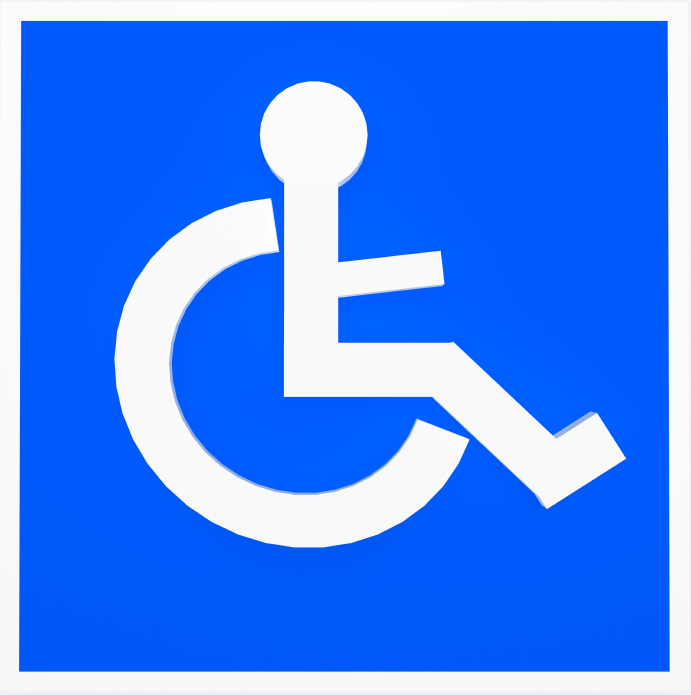Security and Safety: Recognizing the Needs of People with Disabilities

By Ellen L. Shackelford, President, Connections Access Consulting Services, LLC (CACS)
It is human nature to desire to feel secure in the world we live in. This motivational factor has been born in all living beings for centuries; which has become a hierarchy of needs adapted by Abraham Maslow in the 1940's - 1950's. His theory determined Human Beings motivational need for safety was high on his Hierarchy of Needs (Abraham Maslow, 1970). People want to feel safe and secure in their existence and want no reluctance in obtaining it. This factor is a major issue for people with disabilities, especially when they venture out of their comfort zone-home. The thought of staying in a hotel or motel with more than 10 (ten) or more floors can make one apprehensive who use adaptive equipment for mobility, (i.e., wheelchairs, scooters, etc.)
The first motivational factor which kicks in is safety. There are a Majority of hotels offering ADA (Americans with Disabilities Act); classified accessible rooms on lower level floors starting at floors 2-3 to accommodate persons with disabilities. However, if the number of rooms reserved for patrons with disabilities have been exulted upper lever rooms will be assigned, which may have reasonable accommodations as well. Although this may be acceptable for some, it proposes an issue for many.
For example, one who may not have use of his/her lower limbs will not be able to climb a flight of stairs in case of an emergency. As a person who has acquired a disability by the negligence of a truck driver, I can appreciate the need to have an accessible room on the lowest floor possible, which is what I frequently request when traveling independently. Using a wheelchair and not having use of my lower limbs proposes many issues when staying in a hotel or motel. Such as when a fire alarm goes off and your assigned room is on the third floor of a hotel. The first thing which comes to mind is it's got to be a false alarm or I hope it is. Having a fire alarm go off in the middle of the night can be a frightening experience for anyone, more so when it's a person with a disability, who uses adaptive equipment for mobility.
This particular hotel I checked in offered the accessible rooms starting on the third floor, immediately the apprehension set in and my issue of safety and security heightened. Having confidence in the hotel staff, I decided to accept the room and place my trust in their customer service and dedication to serve their guest(s). This meant if anything should go wrong or if there was an emergency, the staff would do what was necessary to provide accommodations and extensive customer service. Upon check in, I was told the room would meet my needs and would accommodate my wheelchair, and if I needed ANY assistance to call the front desk and an attendant would be happy to help. My apprehension was still apparent, for it seemed as though the staff was not sensitive to my general concern for safety. At this particular hotel there were accessible rooms on the first floor, but they were already assigned to other guests. Since I was traveling alone, my first response was to check with a guest on the first floor, who may not use a wheelchair or scooter, for a chance of switching rooms with me. As a self advocate, I wanted to make sure all avenues had been crossed before my choice was made to stay at the hotel.
My worst fear appeared in the middle of the night around 3 a.m., the fire alarm went off! All I could hear was this loud siren, flashing lights in the room and people scurrying in the hall way for the stairs. Of course, the elevators shut down automatically as a precaution when the fire alarm goes off. I was waked out of my sleep in a confused state, trying to get my mind together of what to do to get out of the building in case it was a real fire. It was difficult to put my clothes on fast enough let alone trying to find a way to get down three flights of stairs to the lobby! In my mind all I could think of is, "The alarm is going off and no one has knocked on my door, telephoned my room or yelled to even see if I needed assistance." My confidence in the hotel staff of course went out the window. Why did they not make a connection of some sort to assure I would be placed on the lower floor, where there were handicapped accessible rooms? Unfortunately, I was the only one on the third floor who used adaptive equipment, and was unable to access the elevator towards the lobby floor. Of course I became nervous, scared and confused, for their seemed no solution to accessing the lower level without having to use the elevator for transport.
There just happened to be one lady on the floor who took notice to my wheelchair and said, "Why would you be given a room on this floor, when they can see you use a wheelchair?" She seemed really concerned and then proceeded to say, "If it were me, I would not be anywhere but on the first floor where there are rooms designated for people with disabilities." No one came to my aid, so this concerned guest stayed with me until the matter was resolved with the alarm. We looked over the banister and saw some guests standing in the lobby with their pajamas and robes on waiting for word of what happened. The fire department, police department and paramedics were all on the scene. What a scary and uncertain sight. As the majority of guests who went outside came back in after the situation was cleared by the various rescue departments, we found out there was a small fire from a cigarette on one of the floors. This could have been a devastating incident, which would have caused a lot of grief for many. It was a miracle to have this woman stay with me while all the commotion was going on. As she turned to walk away towards her room, she told me to have a restful night.
There are an estimated 4,000 Americans who die, and 20,000 are injured in fire related incidents each year (FEMA -U.S. Fire Administration). The risk of death or injury resulting from fire incidents is greater for people with disabilities. However, they can be prevented through developing innovative ways to assure safety for everyone. For hotel businesses to understand the needs of security and safety to guests with disabilities here are some ways to provide accommodations and assure their safety:
We all want the comforts of HOME when we travel, so why not provide a service which keeps people coming to a place they feel safe and secure, even if it's an only one or two nights stay? Be mindful of guests with disabilities, for their needs may be more specific than guests without. Have a restful night!
Ellen Shackelford is well aware of the many challenges people with disabilities face daily. She is founder/president of Connections Access Consulting Services, LLC, and is dedicated to a service which will enhance the awareness of the unconscious injustice done to the aging population and Citizens with disabilities. She works so all will be included in social situations. Ellen’s goal is to serve as an advocate by providing education through training and disability awareness programs necessary to address the importance of inclusion in an aging society. Ms. Shackelford can be contacted at 757-827-0783 or ln@cacsllc.info
Republished from the Hotel Business Review with permission from www.HotelExecutive.com






